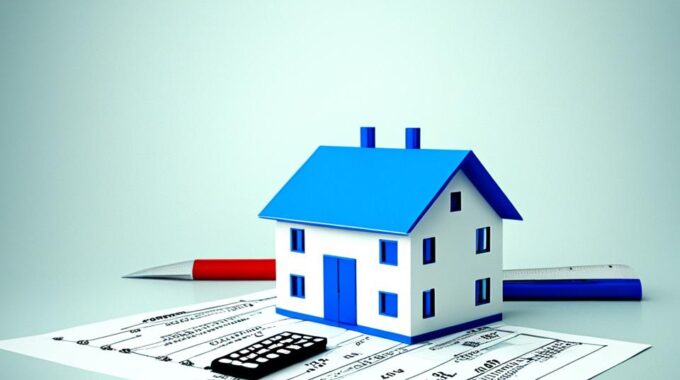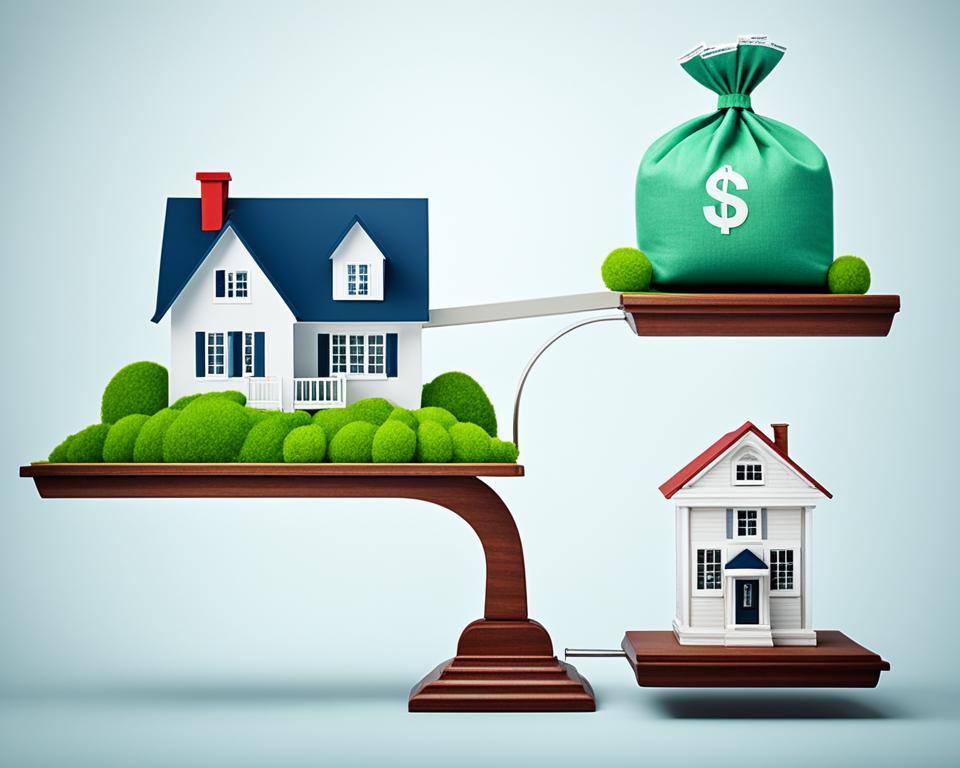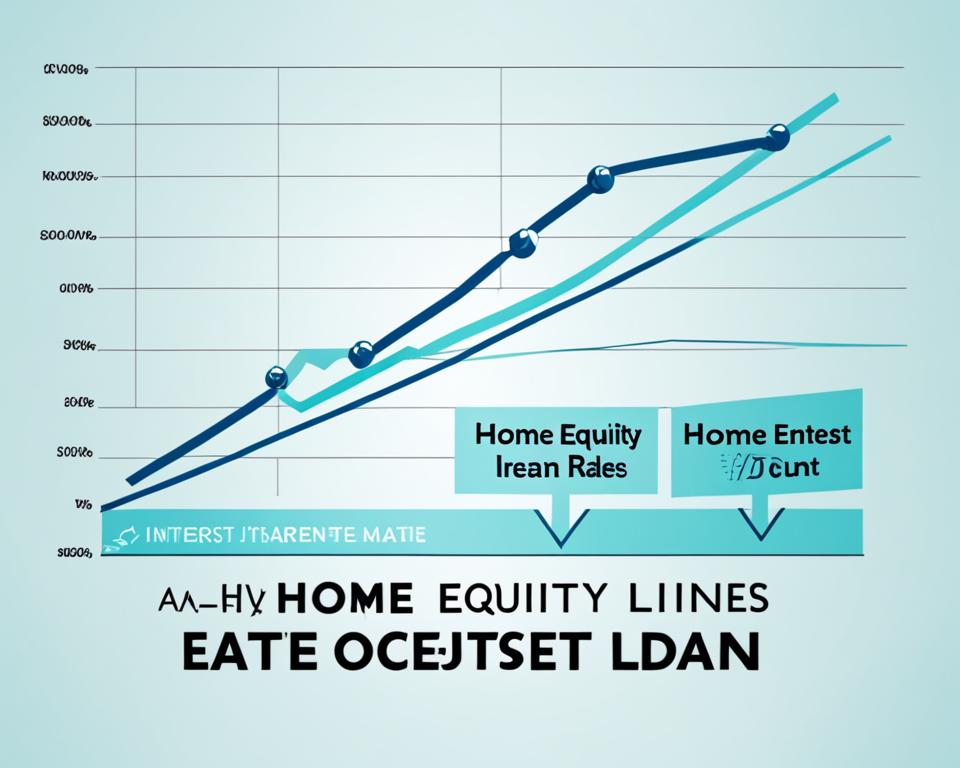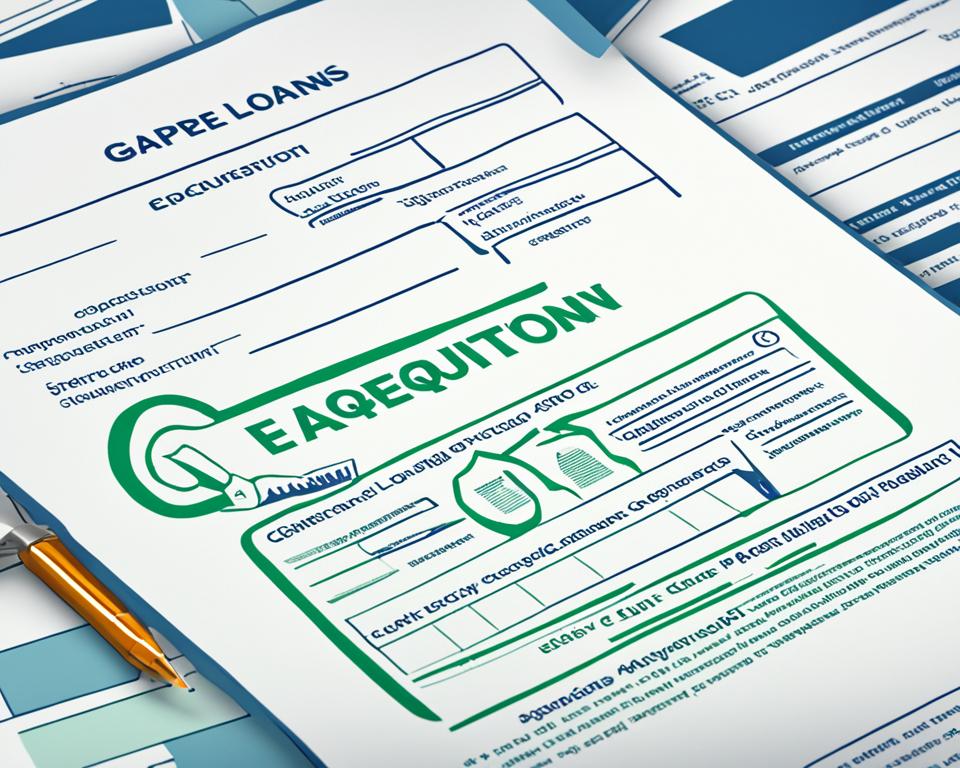Unlock the benefits-of-a-hard-money-loan-in-costa-rica. We connect borrowers with private investors, offering lower fees and flexible loan terms.

Qualifications of Home Equity Loans: What We Offer At Gapequityloans.com
Are you a homeowner in Costa Rica who wants to use the equity in your property? Gapequityloans.com offers detailed info on the qualifications needed for home equity loans in Costa Rica. Home equity loans let you borrow against your property’s equity for things like home improvements, debt consolidation, or other needs. But, it might be tough to get a home equity loan in Costa Rica, especially if you’re a foreigner or work for yourself. Banks and credit unions might take over 9 months to review your application, which is a long wait for a decision.
Let’s go through what you need to qualify for a home equity loan in Costa Rica, and how applying with GAP Equity Loans differs. Figuring out the qualifications and loan types can be crucial if you’re planning a renovation, combining debts, or need cash for other reasons. What makes GAP Equity Loans different from regular lenders for home equity loans in Costa Rica?
Key Takeaways
- Gap Equity Loans and similar private firms can loan up to 50% of your property’s value for a home equity loan.
- Applying through traditional banks or credit unions could mean waiting about 9 months for a home equity loan decision.
- Private equity firms don’t need a certain credit score to approve a home equity loan.
- To qualify for a home equity loan in Costa Rica, you must own the property. It could be a house, condo, or land, but it must have a clear title.
- Private equity firms provide a quicker and clearer loan application process than traditional options.
Introduction to Home Equity Loans in Costa Rica
A home equity loan lets you borrow money using the value of your property. It’s great for home upgrades, paying off debt, and covering other costs. Yet, it can be hard to get one in Costa Rica, especially if you’re not from there or work for yourself.
Explanation of Home Equity Loans
In Costa Rica, a home equity loan has several benefits. You use your property as a guarantee for a big loan. Lenders like GAP Equity Loans offer low rates and good terms. This makes it cheaper and more flexible for you. Plus, you might not have to pay taxes on the loan’s interest.
Home equity loans can be used for many purposes. This includes fixing up your home, paying off debts, or making investments.
Benefits of Home Equity Loans
GAP Equity Loans is a top pick in Costa Rica for these loans. They are quicker and easier to apply to than traditional banks. They also have less strict requirements. Plus, they offer good rates.
With GAP Equity Loans, you can get a loan from 6 months to 3 years. They start at $50,000. So, if you need money for your house, to pay off debts, or for other needs, they can help.
GAP Equity Loans: A Reliable Lender in Costa Rica
GAP Equity Loans is known for their home equity loans in Costa Rica. They offer a simple way to apply, better than banks or unions. With friendlier terms and competitive rates, they are a good choice.
You can borrow money for 6 months to 3 years. Loans start at $50,000. Whether it’s for home upgrades, to merge debts, or other needs, they are a reliable choice.

Qualifications of Home Equity Loans
Property Ownership Requirements
To get a home equity loan in Costa Rica, you need to own the property. This could be a house, condo, or land. It must be in good shape and have a clear title.
Equity Requirements
You must have equity in your property. Equity is what’s left from the property’s value after you subtract the mortgage. Companies like GAP Equity Loans might offer up to 50% of this value, depending on your financial health.
Income and Credit Considerations
There’s no fixed score or payment needed for these loans. Yet, your income and credit past may influence the loan’s terms. This is important to know before applying.
Application Process with Private Equity Firms
To apply for a home equity loan with GAP Equity Loans, get in touch with them. Discuss what loan options are available. You will then fill out a form with details about the property, yourself, and how much you want to borrow. Also, provide 8 to 10 photos of the property and its land survey number.
Initial Loan Request
The application will be checked by a team member. They will also look into the property’s background to ensure everything is okay.
Underwriting and Due Diligence
After reviewing everything, GAP Equity Loans may arrange a visit to your property. This is to confirm its position and state. If all is good, they will offer you a loan, stating the interest rate, the amount, and when it should be paid back.
Site Visit and Loan Approval
After agreeing to the loan, the money will be sent to your bank.
Loan Disbursement
Loan-to-Value Ratio (LTV) and Loan Amount
The Loan-to-Value ratio (LTV) matters a lot when getting a home equity loan in Costa Rica. It shows the loan amount compared to the property’s value. This can change the loan terms and how much interest you pay.
Explanation of LTV
Lenders look at the LTV ratio to see how risky a home equity loan is. It compares the loan amount to the property’s value. This lets lenders know how much of the home you actually own.
LTV Ratio Offered by GAP Equity Loans
At GAP Equity Loans, you might get up to 50% of your property value. If your property is worth $100,000 USD, you could get a $50,000 USD loan.
Loan Amount Calculation Examples
How much you can borrow and the LTV ratio can change. It depends on the property’s value and other things. A $500,000 USD property might let you get a $250,000 USD loan. Yet, a $60,000 USD property could only qualify for $24,000 USD due to the risk the lender sees.

Interest Rates and Term Duration
At GAP Equity Loans, we provide competitive interest rates for home equity loans in Costa Rica. Rates range from 12% to 16% based on the Loan-to-Value (LTV) ratio, loan amount, and other factors. Factors like the loan amount, property value, and the lender’s risk perception can affect these rates. If the LTV ratio is high or the property value is low, the interest rate might be higher to cover the risk.
Competitive Interest Rates
Our rates for home equity loans in Costa Rica fall between 12% and 16%. This is attractive when the typical bank rate for such loans hovers at 14.21%.
Interest Rate Factors
Various elements can sway the interest rate for a home equity loan. The loan amount, property value, and risk impression of the lender are key. A high LTV ratio or low property value can push the rate up to manage extra risk.
Term Duration Options
GAP Equity Loans lets borrowers choose terms from 6 months to 3 years. This range offers flexibility for loan repayments, fitting different schedules.
Pre-payment Penalty and Interest Guarantee
For loan flexibility, we suggest a 1-year pre-payment penalty or interest guarantee. This step secures one year’s interest for lenders, even if the borrower repays early.

Applying for a Costa Rica Home Equity Loan
To get a home equity loan with GAP Equity Loans, start by filling out a form on their website or using WhatsApp. You need to tell them about your property, including its GPS location and sending photos. Also, say why you need the loan and what you’ll do with the money.
Required Information and Documents
GAP Equity Loans needs several things from you to apply. This includes the property’s GPS location, location map (if a company owns the property), and 10-15 recent property photos. They also want to know the property’s size, the loan amount you want, and its value.
Due Diligence Process
GAP Equity Loans carefully checks every loan application. They look into any legal problems or debts on the property. They also confirm the property’s location and value. It’s important that all property taxes are paid up to date.
They even visit the property to see its condition in person. After finishing their checks, GAP Equity Loans find investors to help with the loan.

Conclusion
Taking out a home equity loan in Costa Rica can offer a way to get big funds, especially with GAP Equity Loans. Knowing what it takes to qualify and apply can help you use your home’s value for major projects or debt.
GAP Equity Loans give you some great benefits. You can get up to half of your home’s value. This way, homeowners can make their money work better for them.
A loan from GAP Equity Loans can do a lot for Costa Rican homeowners. By turning home equity into cash, they can meet their financial aims. The loan process is easy, and the options are made to fit your needs.
FAQ
What are the qualifications for a home equity loan in Costa Rica?
To get a home equity loan in Costa Rica, you need to own the property. You must also have equity in it. This means the value of your property needs to be more than you owe on it. Finally, you have to meet the lender’s requirements for income and credit scores.
How much can I borrow with a home equity loan in Costa Rica?
You could borrow up to half of your property’s value with firms like GAP Equity Loans. The exact amount depends on your financial health.
What are the interest rates and loan terms for home equity loans in Costa Rica?
GAP Equity Loans charge between 12% and 16% interest. You can borrow from them for up to 3 years.
What documents do I need to apply for a home equity loan with GAP Equity Loans?
For your application, you’ll need to share some basic details. This includes the property’s GPS location, photos, and its size (both the land and any buildings). You should also tell them how much you want to borrow and the property’s current value. If the property is owned by a company, provide its planning document.
How long does the home equity loan application process take with GAP Equity Loans?
The application involves a thorough study of your property. This includes checking the National Registry and visiting your property. After that, they will try to secure loans for you through investors. This process usually takes some time.
Source Links
- https://www.gapequityloans.com/en/home-equity-loan-qualifications-costa-rica/
- https://www.gapequityloans.com/en/home-equity-loan-qualifications-in-costa-rica/
- https://www.gapequityloans.com/en/costa-rica-home-equity-loans/
- https://gap.cr/smart-way-to-use-home-equity-in-costa-rica/
- https://www.gapequityloans.com/en/home-equity-line-of-credit-costa-rica/
- https://www.bankrate.com/home-equity/requirements-to-borrow-from-home-equity/
- https://www.marketwatch.com/guides/home-equity/home-equity-loan-qualifications/
- https://www.lendingtree.com/home/home-equity/home-equity-loan-requirements/
- https://www.investopedia.com/applying-for-a-home-equity-loan-5198551
- https://gapinvestments.com/en/secure-loans-in-costa-rica/
- https://www.investopedia.com/terms/l/loantovalue.asp
- https://www.bankofamerica.com/mortgage/learn/how-to-calculate-home-equity/
- https://www.gapequityloans.com/en/commercial-loans/
- https://www.gapequityloans.com/en/construction-loans/
- https://www.investopedia.com/terms/h/homeequityloan.asp
- https://www.gapequityloans.com/en/costa-rica-home-equity-loans-guide/
- https://www.gapequityloans.com/en/equity-loans-faq/
- https://www.gapequityloans.com/en/costa-rica-home-equity-loan-advice/
- https://gapinvestments.com/en/what-is-home-equity-in-costa-rica/
- https://www.debt.org/real-estate/mortgages/home-equity-loans/
Article by Glenn Tellier (Founder of CRIE and Grupo Gap)



